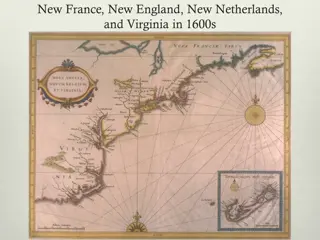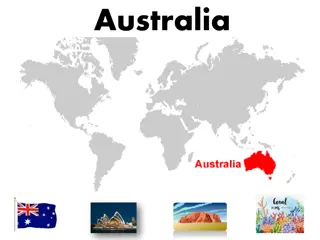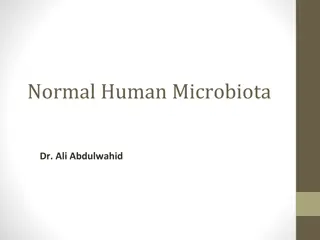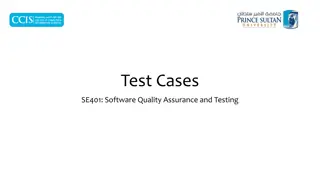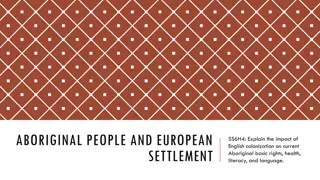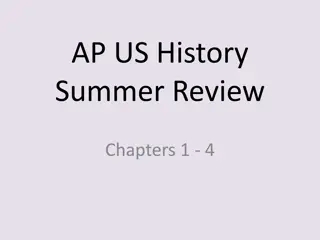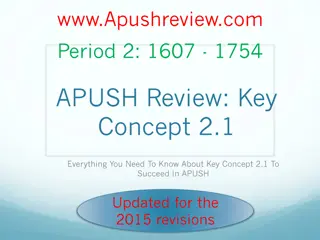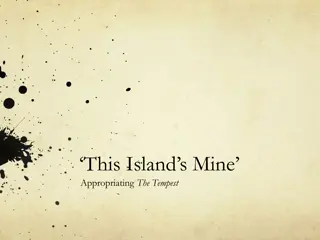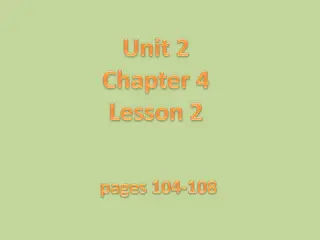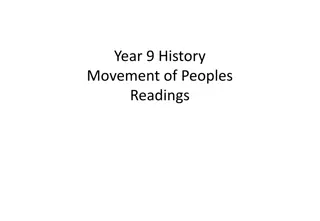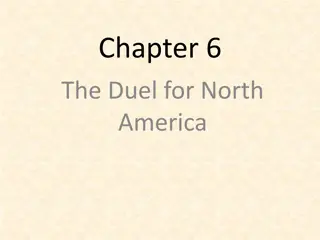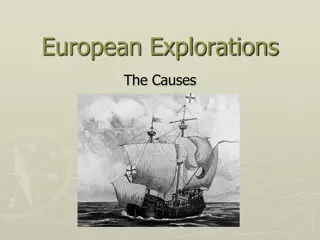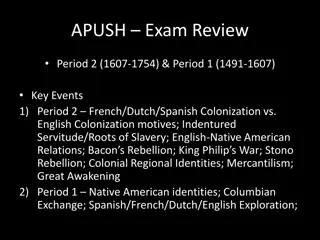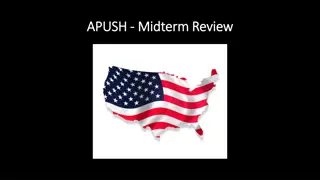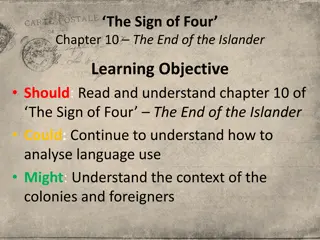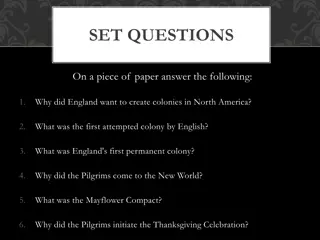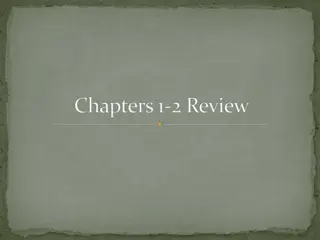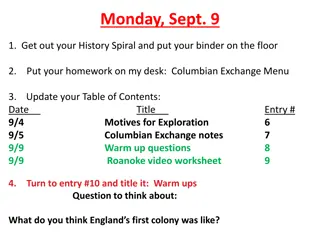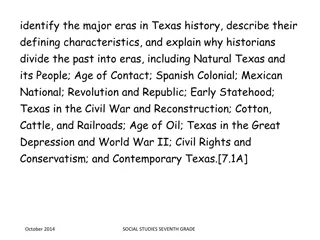Colonization Test Review - Mr. Shaffer 2015
Explore key terms related to colonization including joint-stock companies, plantations, indentured servants, indigo, mercantilism, Middle Passage, toleration, charter, apprentice, and more. Enhance your understanding of the colonial era with this comprehensive review.
Download Presentation

Please find below an Image/Link to download the presentation.
The content on the website is provided AS IS for your information and personal use only. It may not be sold, licensed, or shared on other websites without obtaining consent from the author.If you encounter any issues during the download, it is possible that the publisher has removed the file from their server.
You are allowed to download the files provided on this website for personal or commercial use, subject to the condition that they are used lawfully. All files are the property of their respective owners.
The content on the website is provided AS IS for your information and personal use only. It may not be sold, licensed, or shared on other websites without obtaining consent from the author.
E N D
Presentation Transcript
Colonization Test Review Mr. Shaffer 2015
Group of investors who sponsored voyages Answer: Joint-Stock Company
Large farms, often using slave labor Answer: Plantation
Agreed to work for passage to New World Answer: Indentured Servant
Cash crop of the south Answer: Indigo
A policy where countries aim to gain wealth through trade Answer: Mercantilism
The route between African America, use to transport slaves Answer: Middle Passage
Acceptance of others Answer: Toleration
A document giving permission to settle Answer: Charter
The trainee to the master craft worker Answer: Apprentice
Something grown for the purpose of making money Answer: Cash Crop
A thinly settled area on the outer limits of the colonies Answer: Frontier
Growing enough crops to provide for a family Answer: Subsistence Farming
Those that left the Church of England Answer: Separatists
Outside the city, mostly farms Answer: Rural
A day of worship and rest Answer: Sabbath
Having rights or ownership of a colony Answer: Proprietor
Hoping to change the Church of England Answer: Purtians
Craft workers Answer: Artisan
Relating to that within a city Answer: Urban
Connecticut colonists clashed with the Answer: Pequot Nation
True or False: Quakers believed in slavery Answer: FALSE
Which colony was known as the Lost Colony ? Answer: Roanoke
Who were the first to settle in New York? Answer: Dutch
The Fundamental Orders of Connecticut was Answer: The first American Constitution
Landowners of large Dutch Estates were Answer: Patroons
The Toleration Act of 1649 gave religious rights to Answer: Christians
The House of Burgesses in Virginia was an example of Answer: Representative government
Social mobility means that a colonist could Answer: Change social status
The crop that led Jamestown to prosper Answer: Tobacco
Who Am I? I was established to help London s poor people who could not be released from jail until they paid their debt. I also acted as a buffer zone. I forbade the use of African slave labor and outlawed the sale or use of liquor. Answer: Georgia
Who Am I? I was a great spot to keep a lookout for Spanish ships. However, the swampy land was filled with mosquitoes & lacked good drinking water. during our Starving Time, people even fought one another for roots, acorns, and insects. Answer: Jamestown
Who Am I? In 1636, the minister Thomas Hooker led His congregation from Massachusetts to Come here. With the help of Leaders from other towns, Hooker Worked out a plan of government. Answer: Connecticut
Who Am I? Some settlers from the West Indies introduced the growing of indigo to us. Some of our people grew rich by planting rice on large plantations. We also tended cattle, which were slaughtered for their meat that was exported. Answer: South Carolina
Who Am I? We experienced a starving time and almost half of us died by our first spring. Fortunately, Squanto taught us how to survive in our new home. We shared our abundant harvest with the Native Americans in a large festival. Answer: Plymouth
Who Am I? The Duke of York could not manage all of our land. Therefore, he gave our land to Lord John Berkeley and Sir George Carteret. We were East and West until 1702. Answer: New Jersey
Who Am I? In my colony, settlers would receive land for themselves plus extra acres for each child and our servant with them. In 1633, Lord Baltimore sent two ships, the Ark and the Dove to us. our rivers were a good source of fish, oysters, and crabs. Answer: Maryland
A colonial region packed large Quantities of salted or Dried fish to send to Europe and the West Indies Answer: New England Colonies
In this colonial region, you would find waffles, pretzels, and noodles being made Answer: Middle Colonies
This region was known as The Breadbasket Colonies Answer: Middle Colonies
In this region, the Conestoga Wagon was developed Answer: Middle Colonies
In this region, you would find large plantations that relied on slave labor to produce cash crops Answer: Southern Colonies
In this region, the harsh climate and poor soil limited agriculture to subsistence farming Answer: New England Colonies
In this region, education &Democracy Were promoted through Dame Schools & town meetings, respectively. Answer: New England Colonies
Order the Following Events A. Pennsylvania is founded B. Plymouth is established C. Jamestown is established Answer: C, B, A
True or False John Carver was the man that became a strong leader in the Jamestown colony when the gentlemen in the wild were struggling to make things work. Answer: False
True or False Squanto was the man that brought tobacco to the Jamestown colony and eventually married Pocahontas Answer: False
True or False The Duke of York was asked to leave the Massachusetts Bay Colony, and he eventually settled in Rhode Island Answer: False
True or False Maryland was founded by Lord Baltimore, And welcomed both Catholics And Protestants Answer: True
True or False Anne Hutchinson attempted to start a colony on Roanoke Island, but the settlement eventually disappeared mysteriously. Answer: False


